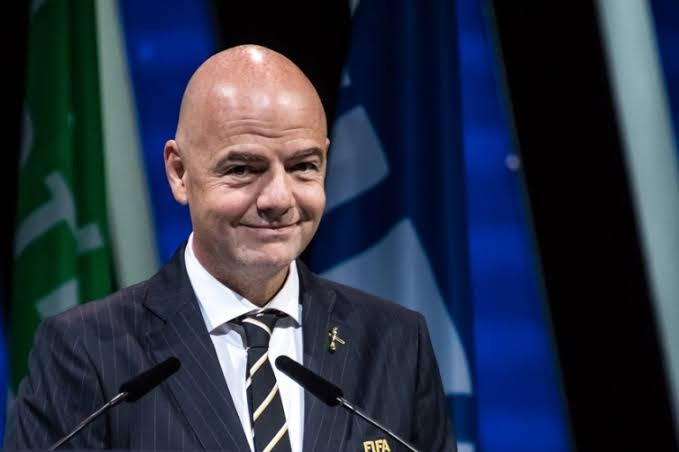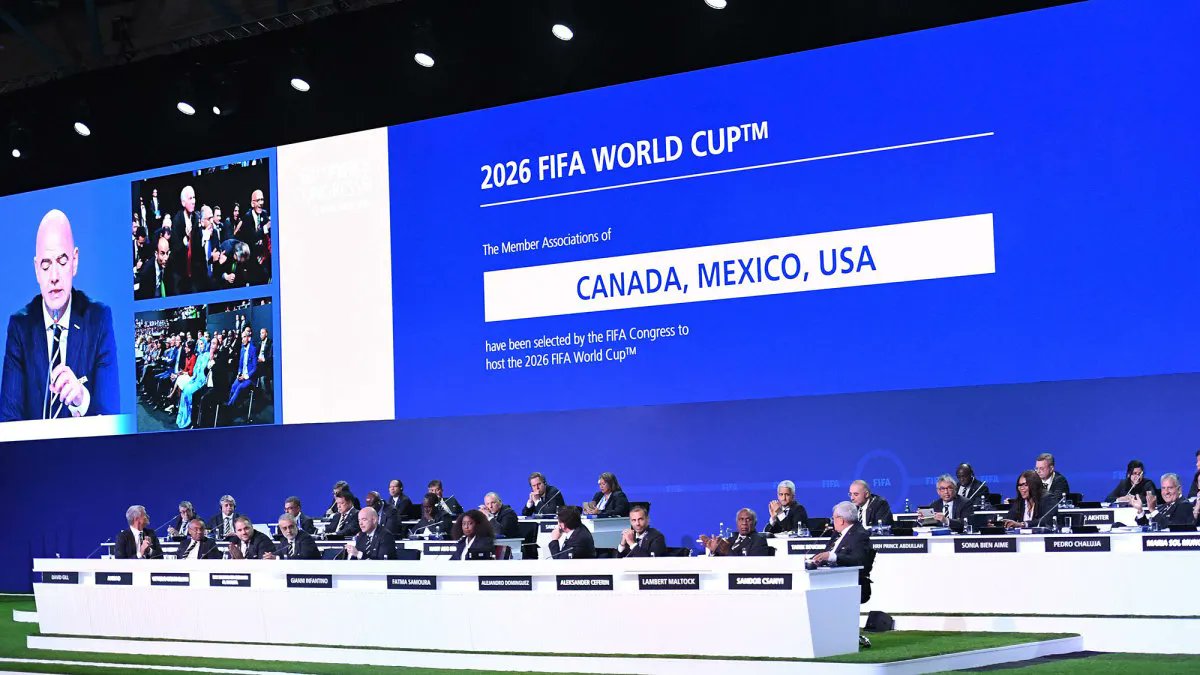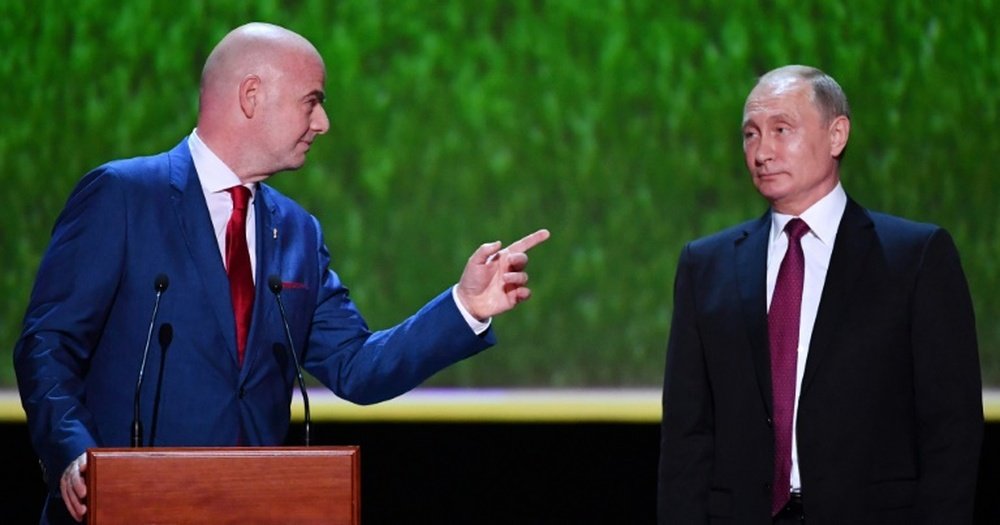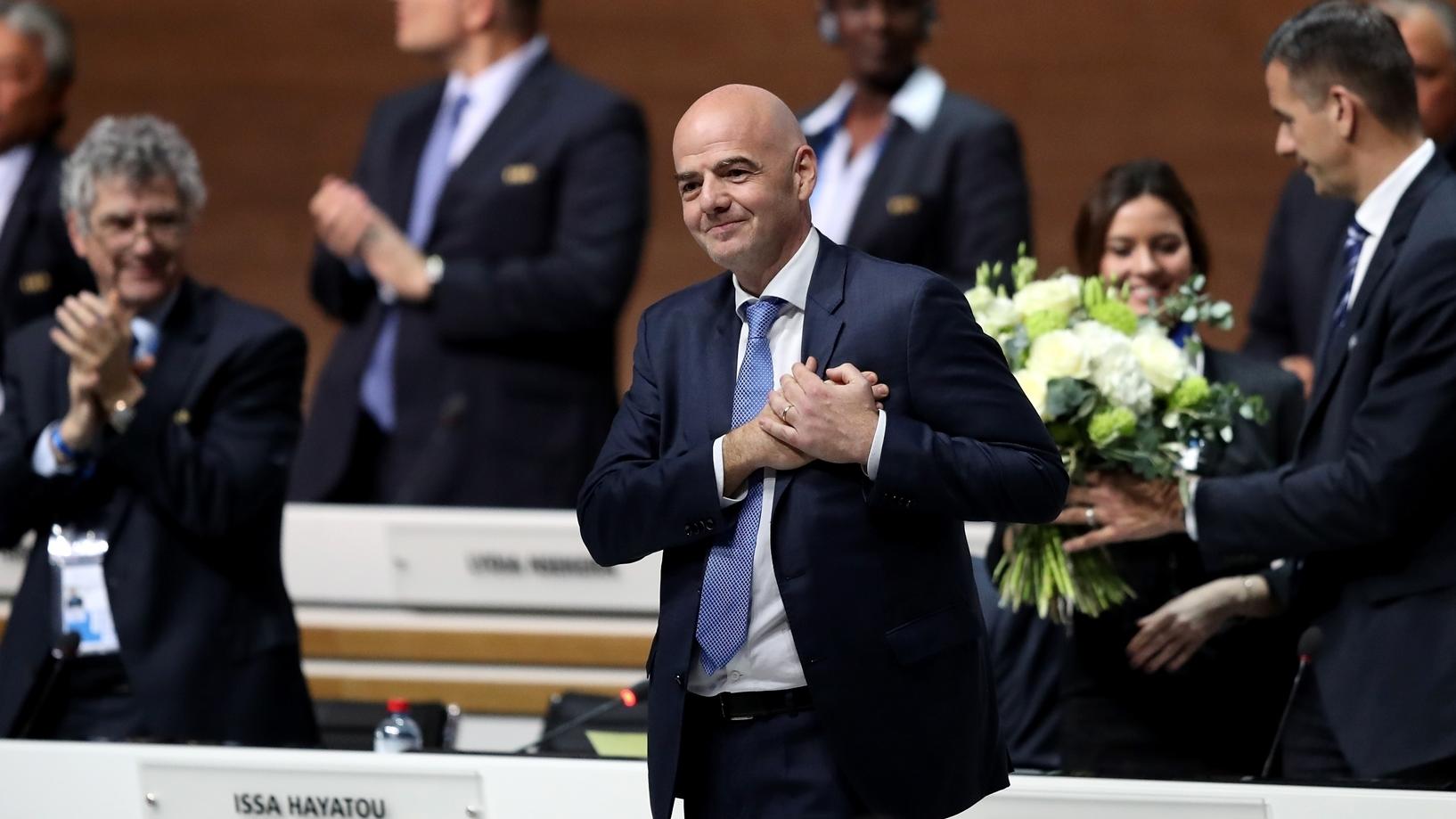Sport News
FIFA Agree To Look At Moving The World Cup To Every Two Years Possibility
Holding the World Cup every two years is to be investigated by FIFA in an attempt to spread the wealth of the global game – and in a challenge to the financial might of UEFA.

The annual FIFA Congress voted in favour of a proposal on Friday to investigate the feasibility of staging the men’s and women’s competitions biennially, rather than every four years, as it is now.
The idea was put forward by the president of the Saudi Arabia football federation Yasser Al Misehal, who suggested it was crucial for the global development of the game.
FIFA Congress has approved a proposal to look into moving the World Cup to every two years
Earlier, the 211 football federation representatives had heard FIFA president Gianni Infantino raise concerns over the ‘financial and sporting disparities’ in the global game – and the dominance of European football.
‘We have to look at everything to make football truly global,’ he said, highlighting that the world’s top 20 clubs are from just five European countries and that World Cups from the semi-finals onwards are dominated by just two confederations – Europe and South America – out of six.
‘It is going into more imbalance, not more balance,’ said Infantino.
The FIFA president’s repeated emphasis on the need for a truly global game set the scene for Al Misehal’s proposal, which Infantino described as ‘eloquent’.
FIFA president Gianni Infantino told the Congress fans want international football as well as domestic games
And the Saudi contribution was immediately endorsed by the Confederation of African Football.
‘It is time to review how the global game is structured and consider what is best for the future of our sport. This should include whether the four-year cycle remains the optimum basis for how football is managed both from a competition and commercial perspective as well as overall football development.
‘It is proposed that a decision is taken by the FIFA Congress to mandate and inform a feasibility study on what impact of playing the FIFA men’s World Cup and FIFA Women’s World Cup every two years could be and how this could feature within a revised international match calendar.’
Al Misehal said the study would have to be wide-ranging and look at the impact of the qualification tournaments as well as the finals themselves of all associations and confederations.
Infantino insisted changes were needed in order to make the game ‘truly global’
World Cups are the main source of income for FIFA, making up the lion’s share of £3.3 billion of revenue it expects to earn in the current four-year financial cycle, which ends with the competition in Qatar in 2022.
In contrast, in 2019-20, UEFA’s revenues were £2.6 billion and over the four-year period, more than £10 billion.
The move to undertake a study into two-yearly World Cups was supported by 166 votes to 22. And the president of the Moroccan Football Federation, Fouzi Lekjaa, speaking on behalf of the Confederation of African Football was quick to endorse it.
‘We believe this will bring future growth to football… and for our regions, which are lagging behind to develop,’ said Lekjaa. ‘Hopefully this will allow us to reach our target of truly global football.’
He was addressing the 211 football federations from around the world via Zoom
If the change went ahead, it would have profound implications for European football, which is already struggling with a crowded fixture calendar of domestic, UEFA and international matches.
With the expansion of the Champions League from 2024 that is a situation that will only become worse.
And Lekjaa dd not shy away from the potential difficulties.
‘We will require a review of all competitions that are already taking place in confederations,’ he said.
Infantino appeared pleased with the contributions. ‘Thank you for your support,’ he concluded. ‘This will be looked at by the FIFA administration and all stakeholders.’





